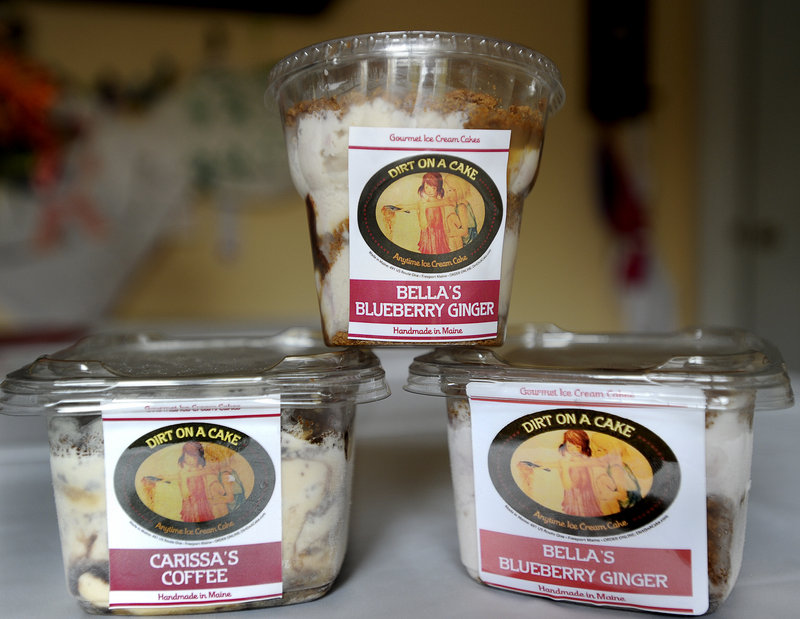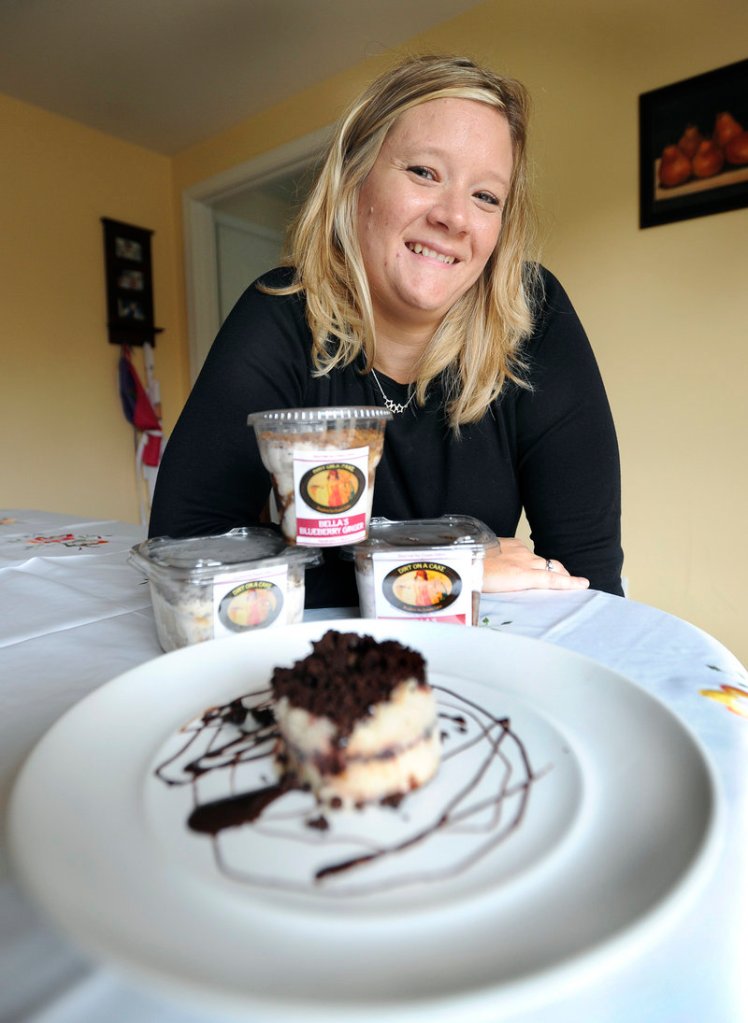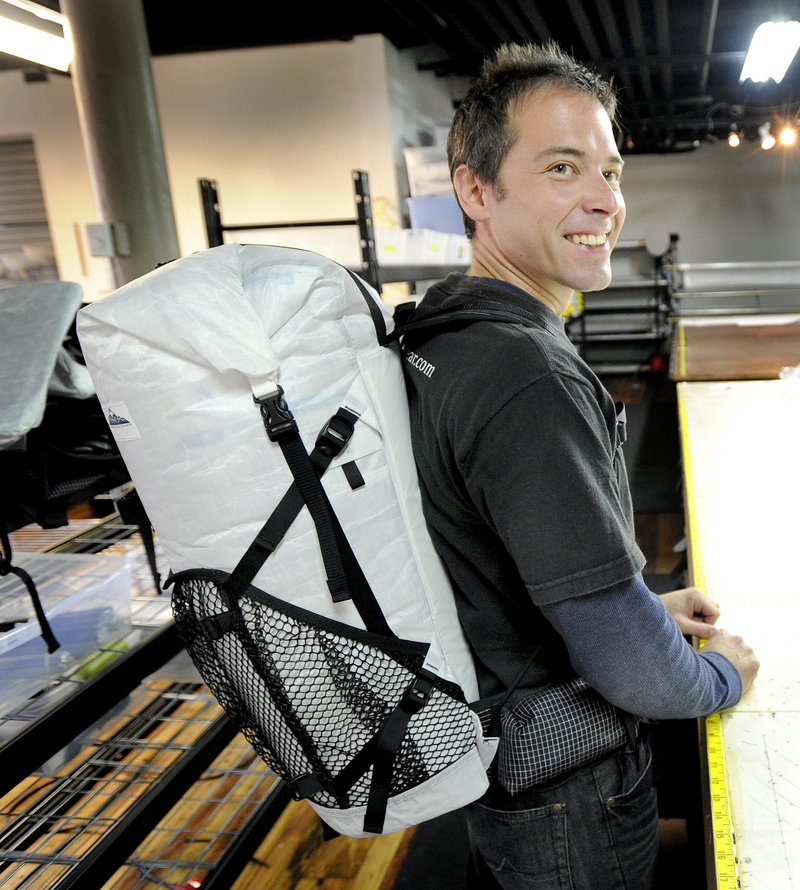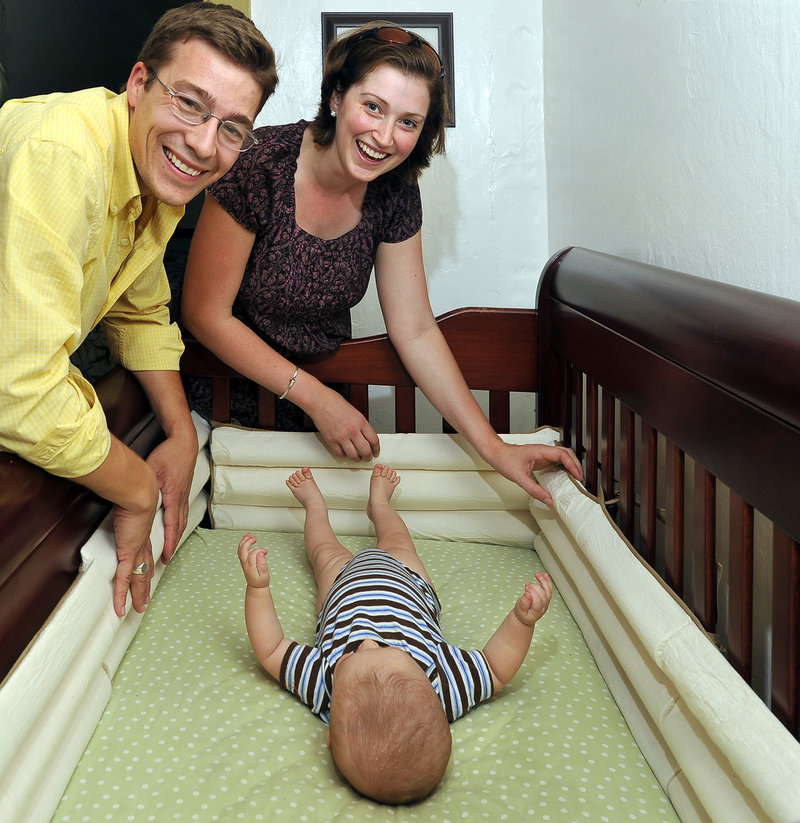PORTLAND – Some of the country’s most successful corporations were launched during periods of economic malaise.
Examples include General Electric, started by Thomas Edison in 1890 during a global recession, Toll House cookies, launched during the Great Depression, and Microsoft, which began during the economic stagnation of the mid-1970s.
Small-business experts say economic conditions are once again ripe for entrepreneurship.
And they say Maine has a host of government and nonprofit resources that can help fledgling businesses get off the ground.
Don Gooding, executive director of Maine Center for Entrepreneurial Development, said layoffs and slack employment growth have created a slew of “entrepreneurs by necessity.”
“When there aren’t many opportunities in the existing economy, people are more inclined to go out and make their own (opportunities),” Gooding said.
Gooding said economic conditions drive both veteran and entry-levels workers to become entrepreneurs.
“What have (workers) got to lose?” he said. “They are not turning down great jobs on Wall Street or in corporate America.”
According to nonprofit research group Ewing Marion Kauffman Foundation, Americans started 565,000 new businesses per month in 2010, the highest rate in 15 years.
And a 2009 Kauffman study found that more than half the companies on the 2009 Fortune 500 list were started during a recession or bear market.
It’s unclear how many entrepreneurs are in Maine, but the state has 147,000 small businesses, according to the U.S. Small Business Administration.
Valarie Lamont, director of the Center for Entrepreneurship at the University of Southern Maine, said economic slumps encourage entrepreneurship, but also can make starting a business more difficult.
“When the unemployment rate goes up and stays up, people look at different options and gravitate toward entrepreneurship,” she said. “On the other hand, in this recession there has been difficulty getting access to credit. It’s harder to start a business and keep it going.”
There are other challenges.
Emily Adams, an entrepreneur who launched Dirt on a Cake last fall, found that running a cake company meant learning a whole new set of skills, like marketing and sales.
Adams wrestled over a marketing strategy before turning to the Women Standing Together networking group for advice. The members encouraged her to sell to small retail shops.
Small business experts say entrepreneurs have drive and creativity, but often must seek outside help in tackling the nuts and bolts of business ownership.
“The biggest challenge is all the hats an entrepreneur must wear,” Nancy Strojny, chair of the Portland chapter of SCORE, a group that provides resources to small businesses. “As an entrepreneur, you have to be CEO, vice president of sales and controller.”
Strojny and others advise entrepreneurs to take advantage of the resources available to entrepreneurs in Maine, many of which are offered by government and nonprofit groups, often free of charge.
For instances, SCORE has seven offices statewide and offers face-to-face counseling. The organization’s low-cost business workshops teach about business plans, social media, Internet marketing and other topics.
“There are a lot of programs out there to take advantage of,” said Adams, whose ice cream cakes are now sold in a handful of southern Maine stores. Adams consulted with the head of the Maine Small Business Development Center at the University of Southern Maine.
Gooding said business people who launch traditional small businesses — restaurants or retail shops, for instance — have the benefit of selling established products or services. Price points are already set, and demand can be estimated.
Gooding said entrepreneurs selling new products face “market risk,” as in, “is there actually a market for the product and service?”
He said the best many entrepreneurs can do is develop hypotheses about demand and price.
“When you test those hypotheses against the real world, sometimes you are right, and sometimes you (must) adjust,” said Gooding. “You just don’t know until you are in the marketplace.”
He added that business plans are of limited value to entrepreneurs.
“You can put together a business plan, but it’s obsolete the moment you write it,” he said. “There are a huge number of uncertainties.”
Unpredictable businesses aren’t prime candidates for traditional bank loans, which can make it difficult for entrepreneurs to land start-up funding, said Strojny.
Many entrepreneurs therefore borrow money from acquaintances, which Gooding calls the “friends, family and fools round” of financing.
Entrepreneurs may also qualify for loans or grants from nonprofit groups like Maine Technology Institute, the Libra Future Fund and the Maine Angels, a nonprofit association of individuals who invest in start-up companies.
Gooding said breaking into mass markets can be difficult because consumers grow attached to established brands.
Therefore, he said entrepreneurs might consider marketing their products to “early adopters” — consumers who pride themselves on owning the latest products.
He said that strategy worked for Biddeford-based start-up Hyperlite Mountain Gear, which sells ultra-light hiking packs and tents designed for hard-core hikers, not day-trippers.
“Early adopters can get you off the ground,” Gooding said. “Then you have to shift gears to attract mainstream (consumers).”
Entrepreneur offers the dirt on challenges of startup
Emily Adams has advice for other entrepreneurs.
“Don’t stop at the first barrier — there will be 100 (more). Be persistent and strong and have faith,” said Adams, 34, who started Windham-based ice cream cake company Dirt on a Cake in September 2010.
Adams has faced her share of barriers. She left a corporate job and created her company from scratch. She taught herself about small business ownership, sold cakes door-to-door and worked with business mentors. She even taught herself how make ice cream.
Now Adam’s business is expanding, and she has ambitious goals.
Adams’ career started in the office of Sen. Susan Collins, where she worked as a volunteer and, later, a scheduler in Collins’ Washington, D.C., office. In 2001, Adams moved back to Maine and worked at Martin’s Point Health Care.
After nine years, Adams left and started Dirt on a Cake.
“I wanted to do something that was my passion, not someone else’s,” said Adams, who is married and has two daughters.
The hardest part of her venture has been convincing retailers to sell her cakes. She walked door-to-door with her pricing sheet, pitching the cakes and giving samples to store owners.
These days, Adams sells roughly 50 cakes weekly to a half dozen retail stores like Bow Street Market in Freeport, The Good Life Market in Raymond and H.B. Provisions in Kennebunk. The cakes come in some 35 flavors and range in price from $4.95 to nearly $40 for a party-size cake.
Adams makes them in leased space at The Prep Kitchen in Freeport, but will soon work from new kitchen in the basement of her Windham home.
Adams plans to expand by selling cakes to food distributors and by opening a retail store.
“I want to see (Dirt on a Cake) everywhere; throughout Maine and New England,” she said.
IN THEIR OWN WORDS
DIRT ON A CAKE FOUNDER EMILY ADAMS
WHAT I LEARNED: In a year I have had to learn about the regulations of selling in the food industry, wholesale and retail sales and how to make Guinness Chocolate Ice Cream.
MOST CHALLENGING MOMENT: The first time someone told me, “No, thank you.” When you put your heart and soul into what you are doing you can’t believe that someone may not immediately jump on board. I have grown much thicker skin.
ADVICE: It is great to have an idea and follow your passion, but you need a clear direction and plan or you will waste time floundering. Take advantage of all the programs out there that will help you get started.
The inside scoop on finding an outdoor niche
Mike St. Pierre has toured with the Eagles rock band and worked at restaurants in New York City.
But in 2009, St. Pierre embarked on the career of an entrepreneur, moving to Maine and launching Hyperlite Mountain Gear, a company selling shelters and backpacks to hard-core hikers.
Hyperlite has 10 employees and CEO St. Pierre, 33, expects to turn a profit in eight months.
A lifelong outdoorsman and hiker, St. Pierre grew up in Hazleton, Pa., but spent summers in Maine.
Earlier, he worked as an audio engineer for rock bands and at New York City restaurants.
A few years ago, St. Pierre learned about cuben fiber, a material several times lighter and stronger than nylon.
St. Pierre said the material was perfect for making hiking backpacks and shelters. He ordered a sample and made a prototype. Feedback from other hikers was positive.
He left New York and started Hyperlite in the garage of his family’s Kennebunkport summer home. St. Pierre raised $100,000 in start-up money and wrote a business plan with help from his brother. He later relocated Hyperlite to the current production site at the North Dam Mill in Biddeford.
Products include backpacks (which cost $255), shelters (which start at $495) and smaller bags and accessories.
St. Pierre said cuben fiber costs $30 per yard. Most competing products are made of nylon, which costs $4 to $5 per yard.
St. Pierre said his products are lighter and stronger, and have a simple, “slimmed down” design; they aren’t cluttered with unneeded pouches or pockets.
“We are streamlining everything,” he said.
Hyperlite makes four to five products daily and sells them on the company’s website and at a few retail stores.
St. Pierre dreams Hyperlite will become a household name in five or 10 years, and plans to expand into more retail stores.
But the challenges are many. Direct-to-consumer sales have been slow to develop, and educating consumers about Hyperlite’s products has taken time.
“It’s stressful as all hell, but we have a solid product with strong potential,” said St. Pierre.
IN THEIR OWN WORDS
HYPERLITE FOUNDER MIKE ST. PIERRE
HOBBIES: Anything that puts me outdoors.
WHY I STARTED THIS BUSINESS: After years of looking for lightweight gear that holds up on the trail, I read an article about cuben fiber. I knew it was what I had been looking for. I placed an order for 9 meters, sat down in my apartment in Brooklyn and made my first shelter.
WHAT I LEARNED: There was a hole in the market for suppliers of high quality, durable, lightweight gear.
ADVICE: If you believe in it, go for it. Find a way to make it happen.
Hoping for a bumper crop of safety-minded buyers
Brunswick resident Seabren Reeves boarded a jetliner bound for the Far East in June.
It was a business trip, but Reeves wasn’t there for his full-time employer, Unum Group.
The 28-year entrepreneur was searching for a manufacturer to produce Bitzy Bumper, a crib liner Reeves developed with his wife, Whitney, a teacher.
The couple started their own company, Bitzy Baby, in 2009 and incorporated it in February. They expect to take delivery of the first Bitzy Bumpers this fall.
“I stayed for a week near the manufacturing facility,” said Reeves of the trip. “I worked to get samples made to the specifications we wanted.”
Whitney, 29, said she and her husband created Bitzy Bumper after the birth of first son, also named Seabren. The couple couldn’t find a safe and effective crib liner, which surrounds the inside of a crib and keeps infants from putting their hands and feet between the rails.
So they created their own.
Whitney started by searching for a safe, breathable material for their bumper. Seabren, a University of Southern Maine MBA student, wrote a business plan. He submitted it in the school’s Student Business Plan Competition and won the first prize of $10,000 in cash and $15,000 worth of business consulting.
After Whitney broke five needles on her sewing machine, the couple sought a professional manufacturer. Unable to find a Maine company with experience making infant bedding products, they looked overseas.
Seabren found a manufacturer while in China and the couple hired a testing company to verify Bitzy Bumper has no dangerous chemicals and does not pose a suffocation risk.
The first 1,200 products will arrive stateside in November.
Seabren promoted the product at September’s ABC Kids Expo in Louisville, and expects to see the product in retail stores soon.
IN THEIR OWN WORDS
BITZY BABY FOUNDERS SEABREN AND WHITNEY REEVES
HOBBIES: Spending time with nephews and nieces and refinishing our home.
WHY WE STARTED THIS BUSINESS: We realized our children deserved to have a safe sleeping environment. When we found it wasn’t possible, we were determined to create it.
WHAT WE LEARNED: Creating the safest product on the market meant finding the best experts in all areas, which were not always based locally.
MOST CHALLENGING MOMENT: Acquiring high quality zippers set back production 20 days, but was critical in order to do what was safest.
ADVICE: Get everything in writing. It’s very hard to trust that someone will do what they say they are going to do. You have to follow through and follow up; you have to be hands-on throughout the process.
Jonathan Hemmerdinger can be reached at 791-6316 or:
jhemmerdinger@ mainetoday.com
Copy the Story Link
Send questions/comments to the editors.






Success. Please wait for the page to reload. If the page does not reload within 5 seconds, please refresh the page.
Enter your email and password to access comments.
Hi, to comment on stories you must . This profile is in addition to your subscription and website login.
Already have a commenting profile? .
Invalid username/password.
Please check your email to confirm and complete your registration.
Only subscribers are eligible to post comments. Please subscribe or login first for digital access. Here’s why.
Use the form below to reset your password. When you've submitted your account email, we will send an email with a reset code.